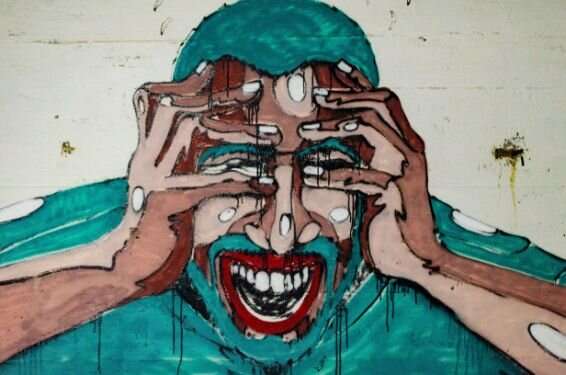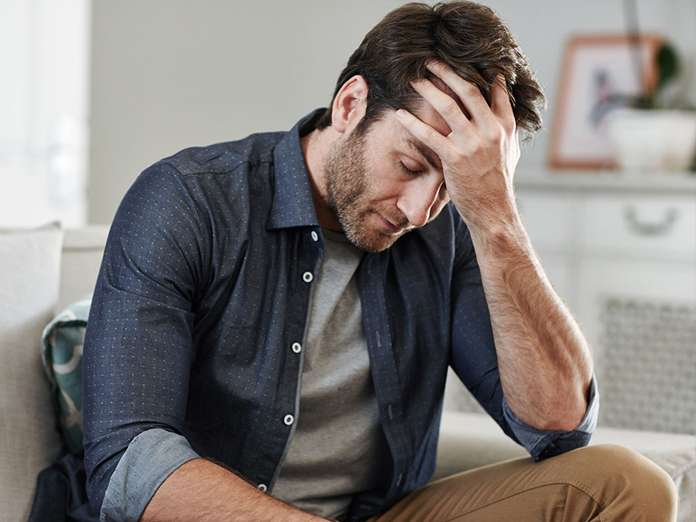Anxiety, Depression, Stress: Why the Differences Matter 
It’s easy to get the care you need.
See a Premier Physician Network provider near you.
Schedule Now
Anxiety, depression and stress — just about everyone feels these emotions at some time. All are common reactions to life’s challenges, from losing a loved one to going through a divorce. On the surface they can look a lot alike, but there are distinct differences.
Is It Anxiety or Depression?
If you often feel anxious or depressed for no apparent reason, you may have an anxiety disorder, depression, or both. It’s not unusual for someone to suffer from both conditions at the same time. In fact, just about half of those diagnosed with depression are also diagnosed with an anxiety disorder.
Depression and anxiety are serious but treatable illnesses. The same medications may be used to ease symptoms of each condition. The two also share similar symptoms, like nervousness, irritability, insomnia and problems concentrating, but each has its own causes.
Anxiety: If you have an anxiety disorder, you may experience:
- Fear, panic or anxiety in situations where most people would not feel anxious or threatened
- A constant nagging worry or anxiousness
- Sudden panic or anxiety attacks without any clear trigger
Untreated, these disorders can limit your ability to work, maintain relationships or even leave the house.
Depression: When you’re depressed, it affects just about everything in your life — how you think, feel, behave and function. You may experience one or more of these symptoms:
- Discouragement
- Sadness
- Hopelessness
- Anger
- Lack of motivation or interest in life in general
- Low energy level
- Insomnia
- Feeling overwhelmed by daily tasks and personal interactions
If these feelings last longer than two weeks, and interfere with daily activities like spending time with friends, caring for your family or going to work, most likely you’re experiencing a major depressive episode.
In fact, just about half of those diagnosed with depression are also diagnosed with an anxiety disorder.
What About Stress?

Stress and anxiety may seem similar, but they’re not the same. The difference? Stress is a response to daily pressures or a threatening situation, while anxiety is a reaction to the stress. Anxiety, which has no clear cause, tends to last longer and be more difficult to treat.
Stress affects a lot of people, and can influence your health. Symptoms include:
- Headaches
- High blood pressure
- Chest pain
- Heart palpitations
- Skin rashes
- Loss of sleep
Stress typically goes away when the stressors disappear. However, chronic stress can escalate into anxiety or depression, so it’s important to take steps to reduce or eliminate stress whenever possible.
If you’re not sure whether you’re suffering from stress, anxiety or depression, don’t delay in talking to a health care provider to get the help you need. The journey to recovery begins with defining the cause of your issues and getting the right treatment.
It’s easy to get the care you need.
See a Premier Physician Network provider near you.
Schedule Now ![]()
The feelings of being overwhelmed, anxious, discouraged and depressed are all so similar, it can often be hard to know which is which. Are you struggling with ongoing depression, for example? Or, are you going through a stressful season of life? Is your anxiety normal, or is it time to seek professional help for treating… The post The Differences Between Stress, Anxiety And Depression appeared first on .
The feelings of being overwhelmed, anxious, discouraged and depressed are all so similar, it can often be hard to know which is which. Are you struggling with ongoing depression, for example? Or, are you going through a stressful season of life? Is your anxiety normal, or is it time to seek professional help for treating anxiety ? How should you think through the symptoms of stress you’re experiencing? What can you do?
To help you understand the differences between these conditions, as well as what to do about them, here’s a look at the specific signs and symptoms of depression, anxiety and stress.
A Closer Look at These Conditions
In today’s world, stress is almost a given. Whether you’re a busy professional or a driven student, you likely face demands and deadlines, as well as other pressures. Yet while stress is normal, depression and anxiety are more serious and are ongoing conditions that can occur as a reaction to stress. As such, they often require different help than just stress management.
Stress, Depression and Anxiety Symptoms
There can be some overlap between depression symptoms and signs and other conditions. To help you identify what you may potentially be facing, here’s a breakdown of the common signs of each:
Symptoms of Stress
-
Feeling overwhelmed
-
Insomnia
-
Having a hard time concentrating
-
Memory problems
-
Irritability
-
Changing eating habits
Anxiety Symptoms
-
Feeling panicked or in danger
-
Rapid heart rate
-
Rapid breathing or hyperventilation
-
Chronic restlessness, nervousness or tension
-
Having a hard time concentrating
-
Insomnia
-
Digestive problems
-
Obsessive thoughts
Symptoms of Depression
-
Feeling sad or hopeless
-
Persistently feeling guilty, worthless or helpless
-
Insomnia
-
Loss of sex drive
-
Having a hard time concentrating
-
Ongoing fatigue
-
Decreased energy
-
Memory problems
-
Anger and rage
-
Changing eating habits
-
Suicidal thoughts
-
Chronic restlessness, agitation, irritability
The Connection Between Stress and Depression
As evidenced above, the signs of stress and depression can look alike — but the main difference is that depression is more intense and long-lasting. Feeling stressed for a few days is usually not cause for concern, but feeling symptoms for at least two weeks may mean it’s time to do something.
Tips for Reducing Stress, Anxiety and Depression
As a first line of defense against stress, anxiety or depression, there are several lifestyle changes you can try to see what helps. Here are some helpful tips to keep in mind:
-
Reduce stressors : Sometimes it’s easy to pinpoint what’s overwhelming you — a specific project, taking on too many tasks, etc. See if you can take a few responsibilities off your plate. Or, at least, break up projects into more manageable chunks.
-
Take care of your body : When your body is depleted, it’s more susceptible to getting overstressed. Make it a priority to get a good night’s sleep, eat a healthy diet, exercise regularly and stay hydrated. By taking care of your body, you empower it to feel better.
-
Do something fun : Sometimes just mixing up routine to get out of the house and have fun can make a huge difference in your outlook on life. Go out with friends, take a walk or do something else you enjoy.
Get Help at Aayu Clinics
When you want help dealing with any of the above conditions, Aayu Clinics is the depression and adhd testing clinics in Chicago you can trust. From yoga wellness anxiety support to depression counseling in Chicago, we have proven anxiety and depression treatment methods to help you. Come to any of our locations to receive personalized, responsive care, quickly and efficiently, from board-certified physicians committed to you.
[Originally published: May 21, 2020. Updated: Sep 22, 2022.]
Long before the coronavirus pandemic mixed fear and uncertainty into daily life, Americans felt stressed out.
They worried about the country’s rising health care costs, struggled to pay them, and wondered if they could even access care in the future. One-quarter of U.S. adults reported discrimination—based on race and gender—as a significant source of stress. And on an individual level, work and money ranked as the top two major stressors, all according to a 2019 study.
Wherever constant stress lives, so too does its more agitated and debilitating cousin: anxiety. About 31% of Americans will experience an anxiety disorder at some point in their lives, with adult and teen women experiencing one far more often than men, according to the U.S. National Institute of Mental Health.
The problem has worsened during the pandemic, with the percentage of adults reporting recent symptoms of anxiety or a depressive disorder increasing from 36.4% to 41.5% between August and February of 2021.
Now, Americans have been reporting even more heightened anxiety about inflation, loss of income, and gun violence, according to a national poll from the American Psychiatric Association in June 2022.
Given all these factors, the U.S. Preventive Services Task Force (USPSTF) recently released a draft recommendation saying doctors should screen all adults under age 65 for anxiety. The USPSTF is a group of independent medical experts that makes recommendations to guide doctors. The draft recommendation is not final, and the public can make comments on it through Oct. 17. The group says the intention is to help prevent mental health problems from going undetected and untreated for years. It made a similar recommendation for children and teenagers earlier this year.
What’s more, anxiety often goes hand-in-hand with depression. Nearly half of people diagnosed with depression also have an anxiety disorder, according to the Anxiety and Depression Association of America. At any one time, “about 7% of the U.S. population meets criteria for a major depressive disorder,” says Rachel Katz, MD, a psychiatrist at Yale Psychiatric Hospital.
As if those statistics weren’t worrying enough, the pandemic has upended daily life in numerous ways over the past few years—causing sickness, death, job loss, and disrupting schedules for children and adults.
“With these concerns, the experience right now is, ‘I don’t have a lot of control over what is happening around me,’” says Carolyn M. Mazure, PhD, a Yale Medicine psychologist and director of Women’s Health Research at Yale.
Feeling a lack of control over a situation can lead to stress, anxiety, and even depression. Recognizing the differences between the them can lead to the right treatment.



